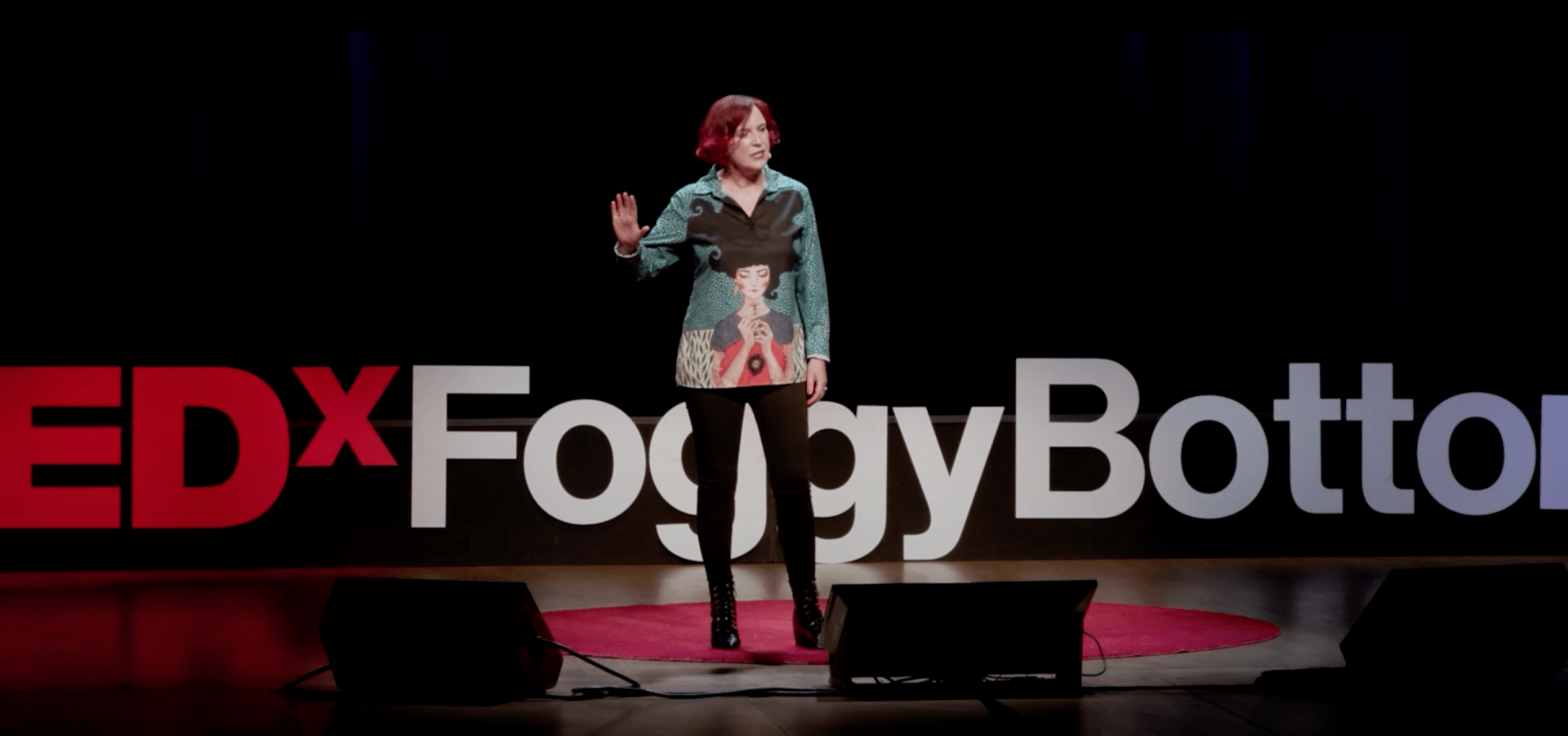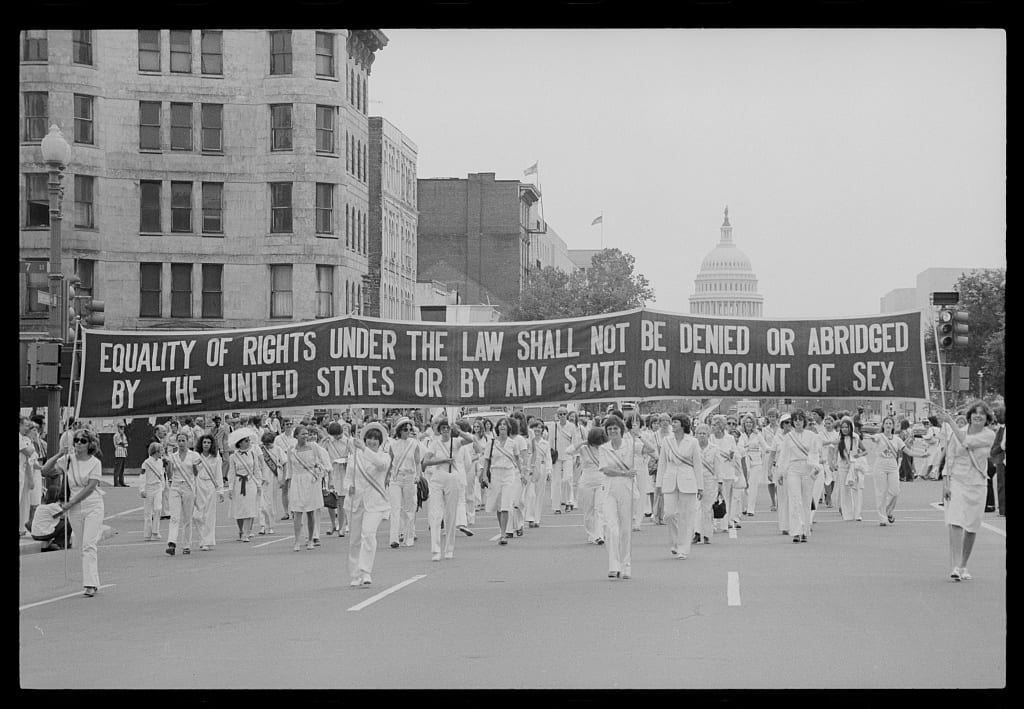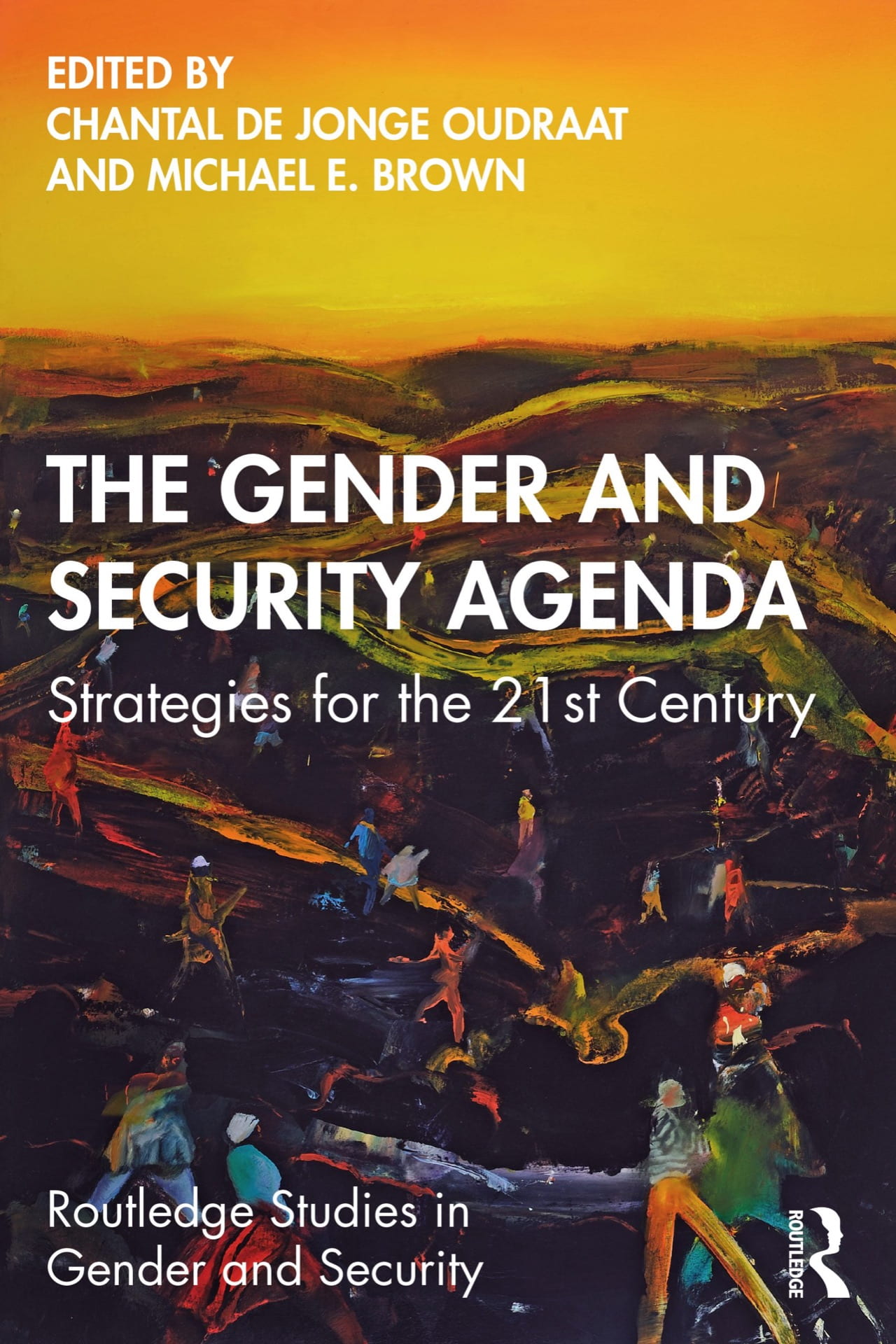By Nina Plateroti
In October 2020, I had the great opportunity to attend a book launch hosted by Dr. Shirley Graham, Director of the Gender Equality Initiative in International Affairs (GEIA) for “The Gender and Security Agenda: Strategies for the 21st Century”. This book examines the gender dimensions of a wide array of national and international security challenges, exploring gender dynamics in ten issue areas in both the traditional and human security sub-fields: armed conflict, post-conflict, terrorism, military organizations, movement of people, development, environment, humanitarian emergencies, human rights, and governance. These examinations show how gender affects security and how security problems affect gender issues. Each chapter examines a common set of key factors across these issue areas: obstacles to progress, drivers of progress, and long-term strategies for progress in the 21st century. The volume develops key scholarship on the gender dimensions of security challenges, providing a foundation for improved strategies and policy directions going forward. The lesson to be drawn from this study is clear: if scholars, policymakers, and citizens care about these issues, then they need to think about both security and gender.
The books’ co-editors Dr. Chantal de Jonge Oudraat, President of Women in International Security (WIIS), and Dr. Michael E. Brown, Professor at George Washington University’s Elliott School of International Affairs, set out why they had published this book at this time. Dr. Chantal de Jonge Oudraat described how she had become, “…very frustrated with the framing of the Women, Peace and Security Agenda as a women’s agenda.” This book argues for a broader gender perspective rather than a woman’s perspective when discussing issues of gender and security, describing the importance of transforming structural and systemic inequalities rather than depending on rhetoric to bring about change. In her remarks, Dr. de Jonge Oudraat made it a point to emphasize the fact that women’s rights and human rights are not two separate entities to be broken up into two separate discussions stating, “… [women’s rights and human rights] are universal – it is not that you can pick and choose about human rights or women’s rights.” This book illustrates the strong correlation between gender inequality on the one hand and the onset of violent conflict and instability on the other, solidifying the interconnected nature of women’s rights and human rights.
In his remarks, Dr. Michael E. Brown argued for the expansion of the gender perspective in security policy, acknowledging the progress that has been made and emphasizing all that still needs to be done. Dr. Brown stated, “We are talking about changing the most deeply entrenched, institutionalized, pervasive and powerful structures in human affairs – patriarchies,” pointing to the fact that in the last 25 years there have only been two major articles in the Journal of International Security published on gender issues. Dr. Brown made clear how essential it is that agendas that started as the agendas of feminists and gender scholars become the agendas of all security scholars, focusing much of their work on the inherent connection between gender and security.
The conversation with co-authors Corey Levine, Anne Marie Goetz, and Ellen Harding discussed the obstacles to progress, the drivers of progress, and the long-term strategies for progress in the 21st century. Corey Levine, a Human Rights & Peacebuilding Policy Expert, examined how human rights – both as a concept and a series of laws – “… has used an equality model that focuses on the individual and has ignored the structural discrimination and disadvantages that are experienced by women and girls because of their gender.” Levine touched on the fact that there are customs and traditions so entrenched in societies the world over that they act as some of the most powerful obstacles to progress, and even in the relatively modern and continually advancing field of human rights, these obstacles prove formidable. As her discussion on the evolution of human rights and security brought us closer to the present day, Levine discussed how we now see an emphasis on women’s participation in national militaries and multilateral peacekeeping missions as an integral part of the Women, Peace and Security agenda. Levine stated that “This is in keeping with a shift away from the human security centered approach which put human rights and human development at the forefront [of US foreign policy],” during the 1990s. She discussed how since the turn of the century brought about intense focus on counterterrorism efforts as a result of 9/11, the stringent counterterrorism laws and regulations put in place to prevent money laundering to terrorist groups have negatively impacted the ability of local women’s groups to access aid and developmental assistance, particularly in countries like Iraq and Syria. Unfortunately, this is a prime example of how the emphasis on militarization and counterterrorism has had the twin effect of rendering women’s rights invisible, while, at the same time, amplifying abuses on the basis of gender. Through her discussion, it becomes increasingly clear that, even when unintended, changes in security policy will undoubtedly have consequences on gender equality efforts and regional stability as a whole. As Levine aptly put it, “…next to biological reproduction, war is the most gendered of all human activities.”
Dr. Anne Marie Goetz, a Clinical Professor at the New York University, focused her remarks on the liberal peacebuilding approach that the Women, Peace and Security Agenda has found a home in, although not necessarily a secure home. Dr. Goetz observed three trends away from the liberal peacebuilding approach: first, the backlash against liberal norms that is coming from some of the most affluent democracies that promoted these norms in the first place; second, a similar shift towards illiberalism from extremely important influential mid-sized regional powers such as Brazil, India, and Nigeria; third, the growing authority of China as a provider of foreign assistance, influencing small, conflict-affected states in its sphere. Interestingly enough, misogyny seems to be at the center of the promotion of these trends and while the liberal model created the space for the inclusion of Women, Peace and Security, Dr. Goetz notes that “…it did so belatedly and imperfectly.”
Dr. Ellen Harding, a Senior Fellow at WIIS, brought the conversation full circle by highlighting some of the obstacles women continue to face in joining the military. Dr. Harding stated that “…one of the key findings is that military organizations are quintessentially masculine constructs that are built on very traditional and highly dichotomous notions of masculine and feminine gender norms. Specifically, the notion of men as protectors and women as the protected and that physical strength is essential to success on the battlefield.” In this prevalent construct, there is no room for women except for as caregivers and in administrative and support roles. Often, the men who run the military buy into these constructs and, “…individual and institutional identity is threatened by women’s inclusion.” This is not to mention that laws in many countries continue to exclude women’s access to military jobs and their paid maternity and family leave programs remain limited, causing women to leave the military at high rates. Dr. Harding stated that, “When change has occurred, it has been driven by necessity and not necessarily by changing liberal social norms and certainly not by progressive views inside the military themself.” However, women’s increased participation in the military and their increased access to education and training has proved invaluable on the modern battlefield, pointing to just one aspect of the importance of women’s inclusion in the military. Dr. Harding’s remarks serve to highlight the inherent connection between gender and the most traditional sector of security – the military.
The book launch ended with a series of questions from the audience, ranging from topics such as how educators can aid in gender mainstreaming on the academic front to the drivers of progress in various gender equality initiatives and undertakings. This question-and-answer section was extremely insightful, providing audience members with food for thought and concrete ways we as students, educators, and advocates can make a difference. As a student at GW studying international affairs, I found Dr. Browns’ answer on how one can teach international affairs and security in a way that helps the cause particularly interesting and truly exciting. Dr. Brown stated that, “One key step is to have courses that cover a wide range of issues…the other part of it is to mainstream gender in our introductory and survey courses, as well…we have to be careful to not just have an hour or a week on gender and to check off the box and say, ‘Well, we did that,’ but actually to integrate it into the course as a whole.” Dr. Browns’ discussion on how he does this in his courses and how many GW programs work to achieve this imperative task made me eager for all that my education has in store. As the conversation came to a close, Dr. Brown made a final comment on the GEIA being exemplary amongst universities in educating future generations of leaders on gender in international affairs. He highlighted the amazing work it conducts under the leadership of Dr. Shirley Graham, imploring all invested in this work to look towards the comprehensive programs and courses offered by the GEIA.
As an undergraduate student committed to dedicating my career to the advancement of women’s rights, this conversation introduced me to nuances within the Women, Peace and Security agenda that I had not previously considered and left me with a deeper understanding of the real structural changes that are needed to make progress in the realm of gender and security. Structural change is necessary, not only in how the security field views the Women, Peace and Security agenda, but in how all sectors of the security profession work together – not as their own silos, but as organizations that are aware of the interconnectivity of their imperative work. Their efforts cannot be complete without cross-organizational collaboration and the fundamental understanding that the gender perspective is a security perspective that affects all of humanity, not just women.
Nina Plateroti is a freshman at the George Washington University in the Elliott School of International Affairs. She is working towards a double major in international affairs and political science, with a minor in women, gender and sexuality studies. She is a Freshman Representative for GW Leading Women of Tomorrow and serves as Secretary to her local League of Women Voters.




